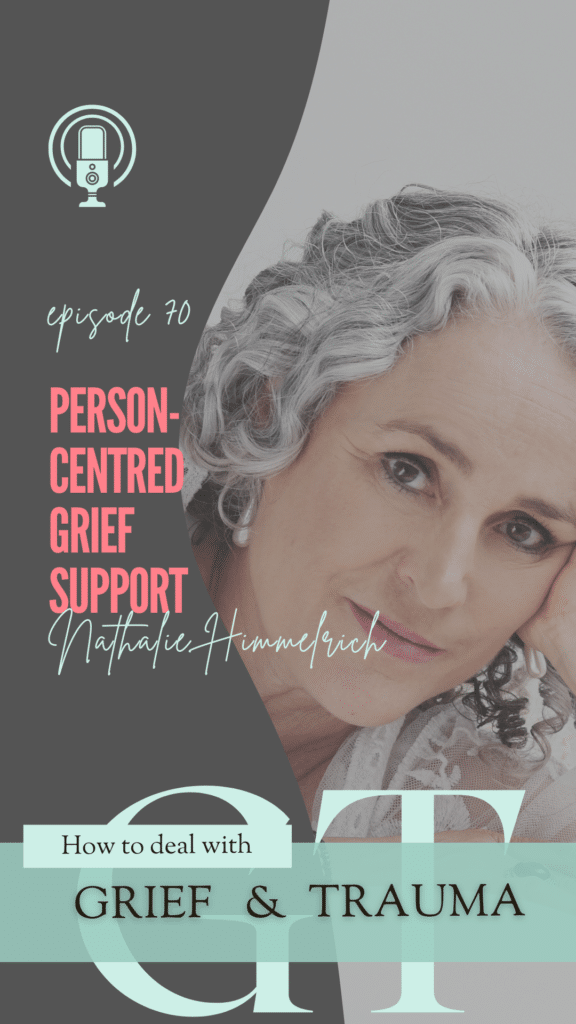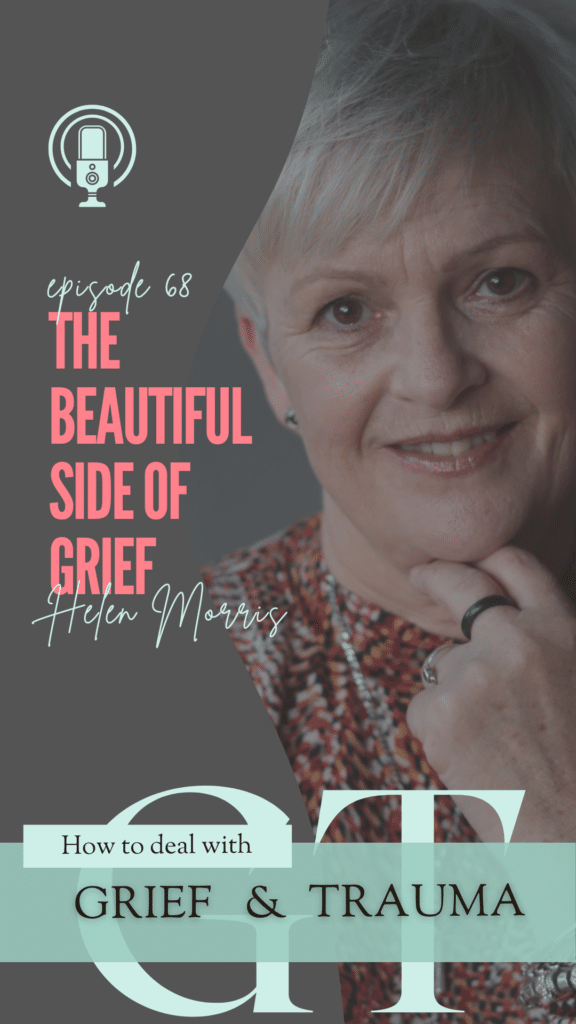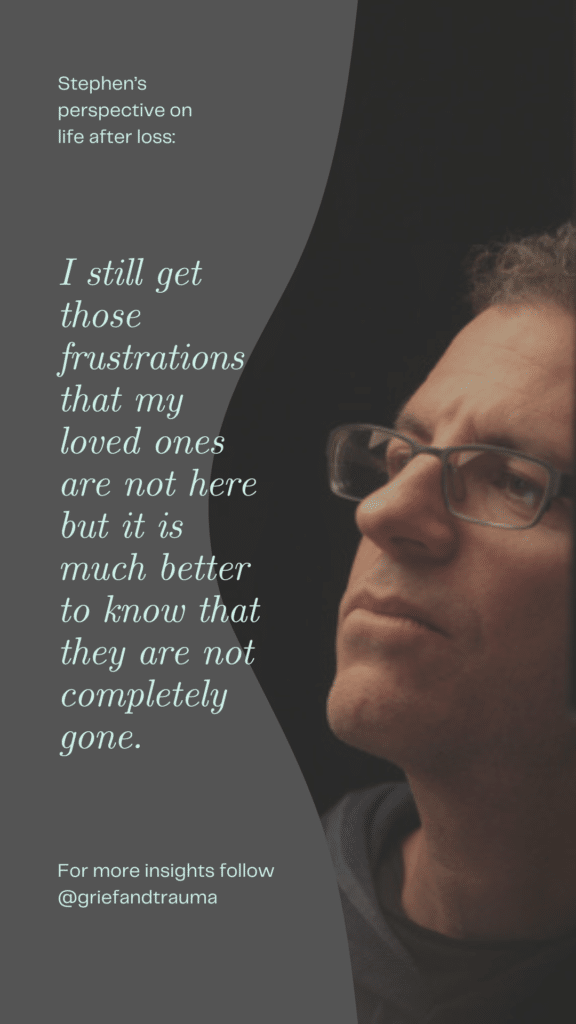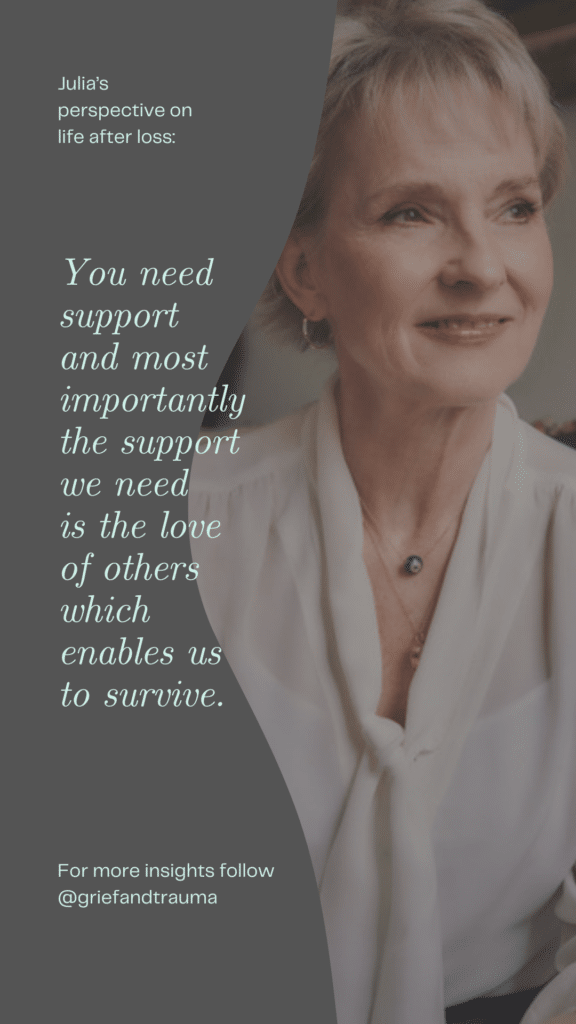HOW TO DEAL WITH GRIEF AND TRAUMA is completely self-funded, produced, and edited by me, Nathalie Himmelrich.
Consider making a small donation to support the Podcast: bit.ly/SupportGTPodcast. Thank you!
For more information, please visit Nathalie’s website, join the podcast’s Instagram page, and subscribe to the newsletter to receive updates on future episodes here.
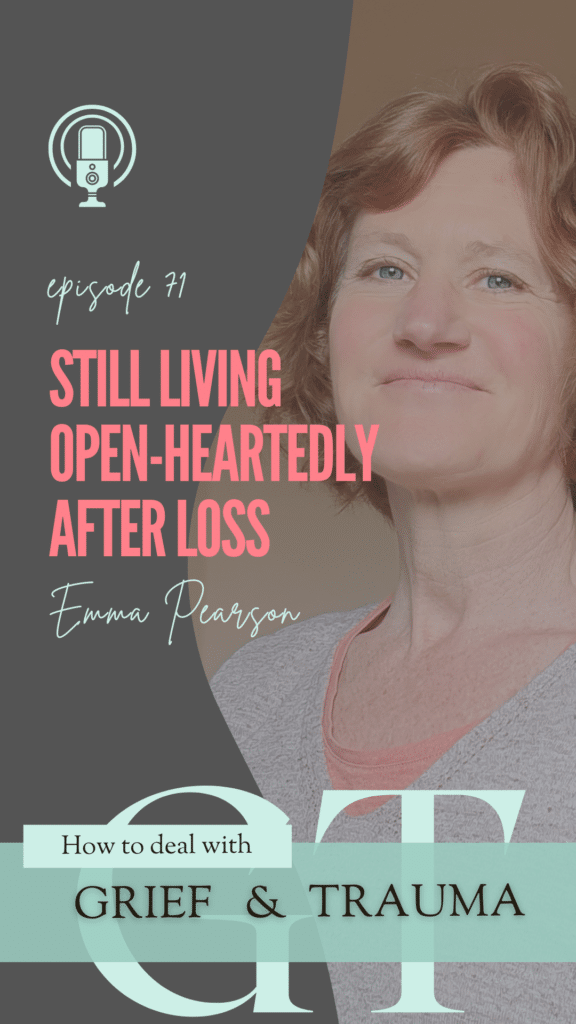
About this week’s episode
For today’s episode, I speak with Emma who I’ve met through email as she reached out to me as a podcast listener, where she shared about her multiple significant losses. Something in her email touched me and interested me. I felt that her specific story – the combination of grieving a child at the same time as grieving her husband and the father of their child – would be very interesting to share in an episode in the hope of fostering a community of widowed parents grieving a child.
About this week’s guest
Emma is a Brit who has been living in France, just outside Geneva, for the past 25 years. She grew up in Brussels in the 1970s and 1980s then headed to the UK for university studies, specialising in organisational psychology – a field she still loves and works in as an independent practitioner. Between 2015 and 2019 Emma had a series of four significant losses – starting with her best male friend, Don; then her youngest brother, Edward; then her husband, Mike; and then their youngest child, Julia. It’s been a lot. Too much. And yet the world keeps spinning and somehow life carries on. There is much to live for and much to enjoy about life. Emma still has her two surviving children, now young adults. There is a lovely new man in her life who goes by the name of Medjool (dates!) And at the time of writing, still has both parents, now in their mid-80s.
- Website: kaleidoscopedevelopment.com
- Website: www.widowingemptynests.com
- LinkedIn: www.linkedin.com/in/emmapearson
Resources mentioned in this episode:
- Episode 64 with Turiya: Grief, Trauma, Essence Connection and Safety
Support the show:
- Become a supporter of the show! Starting at $3/month
- Join Facebook Group – Grief and Trauma Support Network
- Download the FREE grief resource eBook
- Book a Discovery Call
- Leave a review
Follow on socials:
